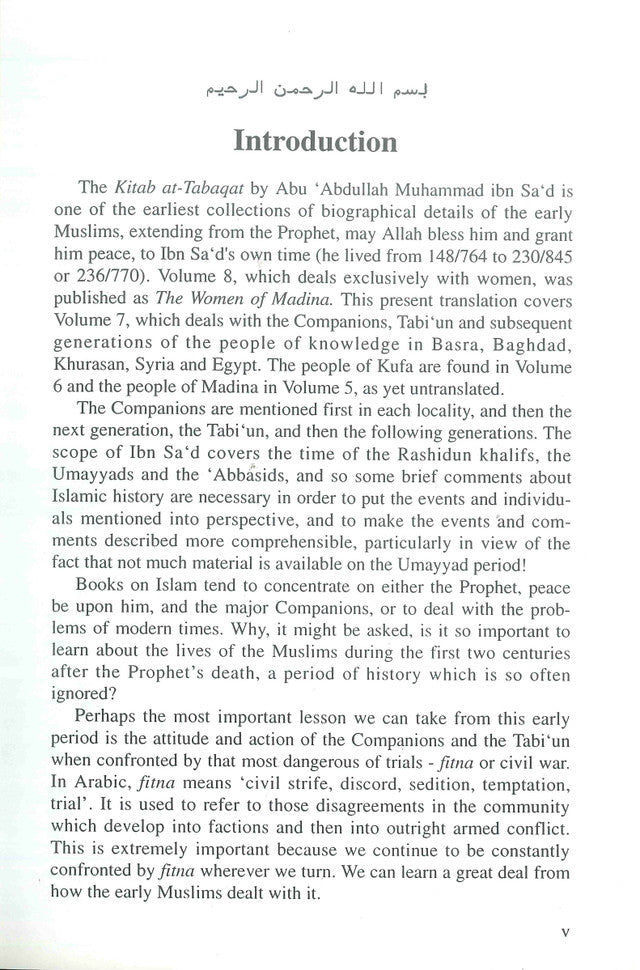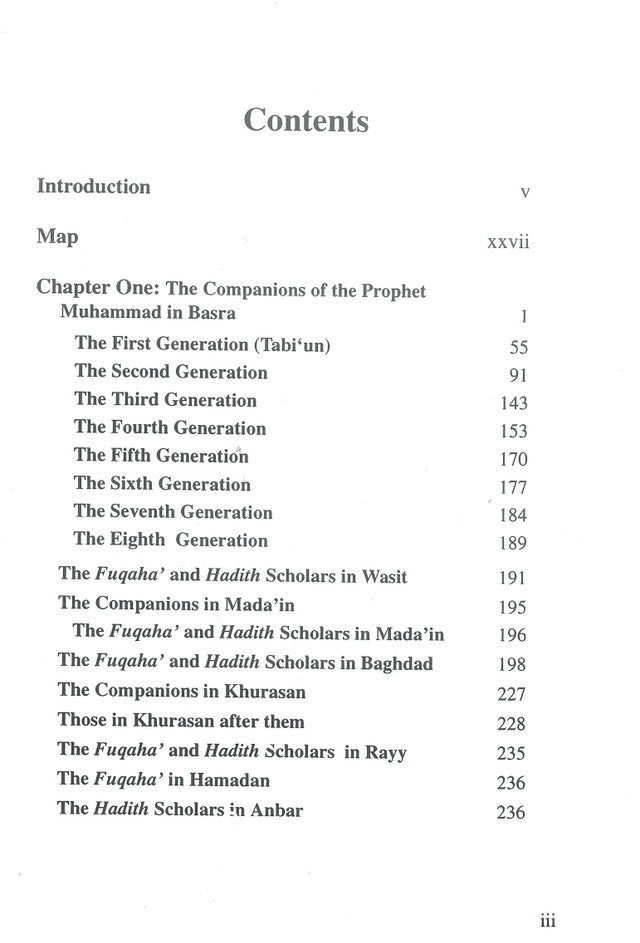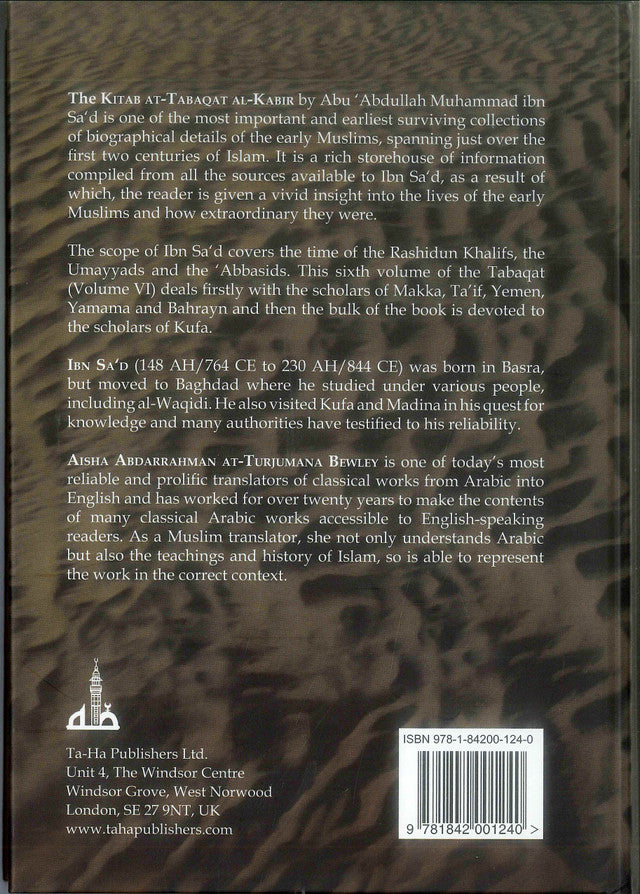This is a translation of volume seven of Ibn Sa’d’s Kitab at-Tabaqat al-Kabir. The Tabaqat is a great store of information which gives the reader a vivid taste and feel for the character of the people of Madina and their extraordinary personalities. This translation deals with the Companions, Tabi’un and subsequent generations of the people of knowledge in Basra, Baghdad, Khurasan, Syria and Egypt. It is of particular interest since it demonstrates the attitude and action of the Companions and the Tabi’un when confronted by the dangers of civil war. It is extremely important in the modern age as we can learn a great deal from how the early Muslims dealt with this trial.
The Men of Madina volume 1 By Muhammad Ibn Sa'd
The Men of Madina volume 1 By Muhammad Ibn Sa'd
Publisher:
Ta Ha Publisher
Author:
Muhammad Ibn Sa'd
Language:
English
Binding:
Soft Cover
Pages: 337
Size: A5 |5.8 x 8.3 in| 15x 21 cm
Couldn't load pickup availability

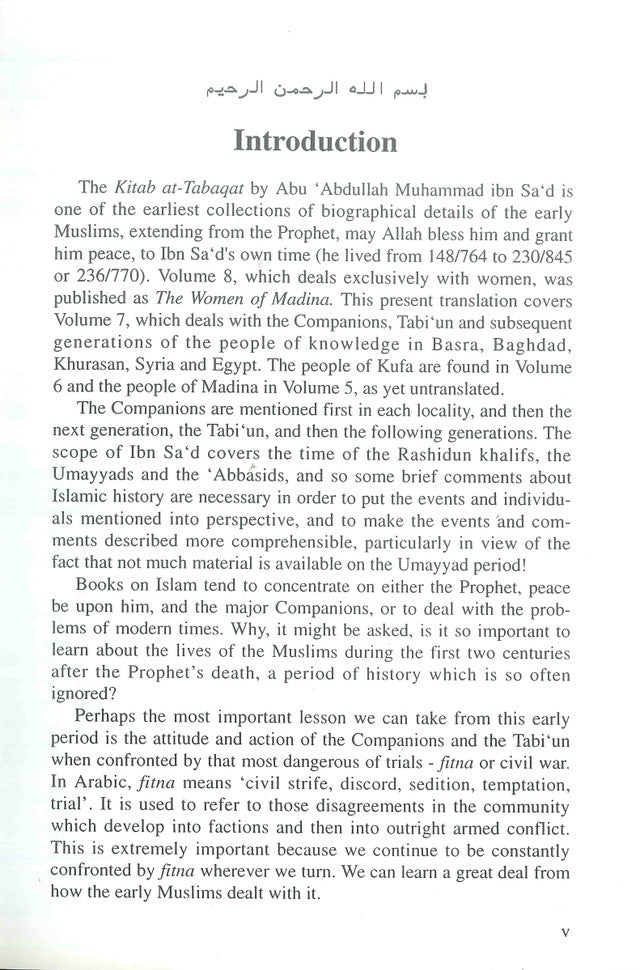
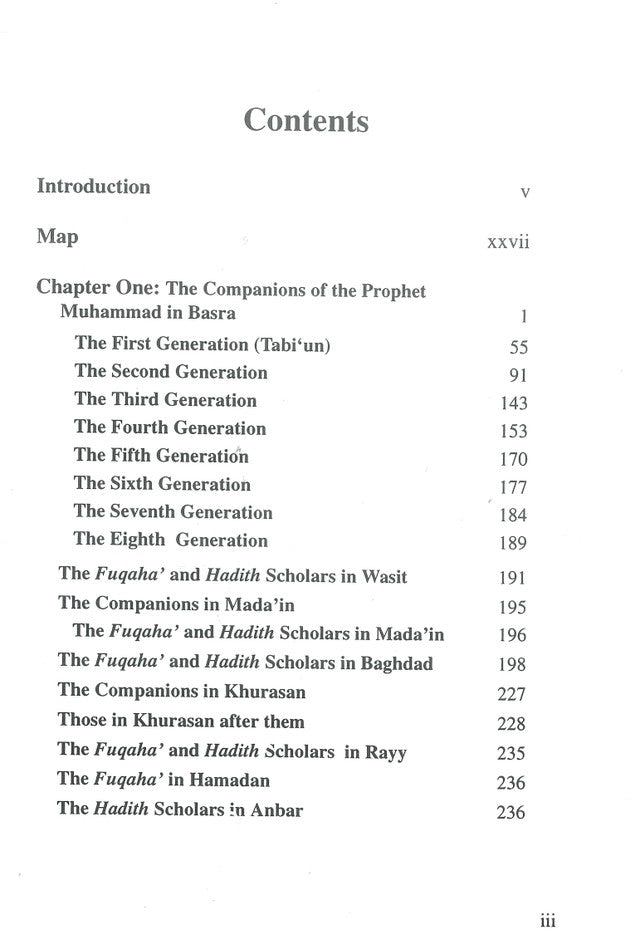
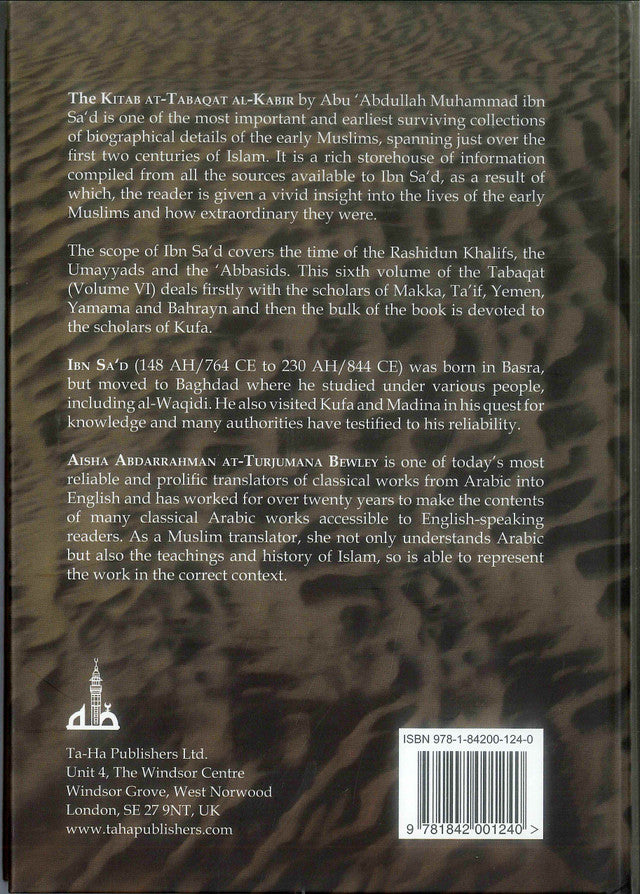
Collapsible content
Description of Book
Publisher
Ta Ha Publisher
Author
- Muhammad Ibn Sa'd
Sample Pages - Content
Page no:1 The Men of Madina
Volume I
Muhammad Ibn Sa'd
Page no:2 بسم الله الرحمن الرحيم
Introduction
The Kitab at-Tabaqat by Abu 'Abdullah Muhammad ibn Sa'd is one of the earliest collections of biographical details of the early Muslims, extending from the Prophet, may Allah bless him and grant him peace, to Ibn Sa'd's own time (he lived from 148/764 to 230/845 or 236/770). Volume 8, which deals exclusively with women, was published as The Women of Madina. This present translation covers Volume 7, which deals with the Companions, Tabi'un and subsequent generations of the people of knowledge in Basra, Baghdad, Khurasan, Syria and Egypt. The people of Kufa are found in Volume 6 and the people of Madina in Volume 5, as yet untranslated.
The Companions are mentioned first in each locality, and then the next generation, the Tabi'un, and then the following generations. The scope of Ibn Sa'd covers the time of the Rashidun khalifs, the Umayyads and the 'Abbasids, and so some brief comments about Islamic history are necessary in order to put the events and individu- als mentioned into perspective, and to make the events and com- ments described more comprehensible, particularly in view of the fact that not much material is available on the Umayyad period!
Books on Islam tend to concentrate on either the Prophet, peace be upon him, and the major Companions, or to deal with the prob- lems of modern times. Why, it might be asked, is it so important to learn about the lives of the Muslims during the first two centuries after the Prophet's death, a period of history which is so often ignored?
Perhaps the most important lesson we can take from this early period is the attitude and action of the Companions and the Tabi'un when confronted by that most dangerous of trials - fitna or civil war. In Arabic, fitna means 'civil strife, discord, sedition, temptation, trial'. It is used to refer to those disagreements in the community which develop into factions and then into outright armed conflict. This is extremely important because we continue to be constantly confronted by fitna wherever we turn. We can learn a great deal from how the early Muslims dealt with it.
V
Page no :3 Contents
Introduction
Map
Chapter One: The Companions of the Prophet Muhammad in Basra
The First Generation (Tabi'un)
The Second Generation
The Third Generation
The Fourth Generation
The Fifth Generation
The Sixth Generation
xxvii
1
55
91
143
153
170
177
The Seventh Generation
184
The Eighth Generation
The Fuqaha' and Hadith Scholars in Wasit
The Companions in Mada'in
The Fuqaha' and Hadith Scholars in Mada'in
189
191
195
196
The Fuqaha' and Hadith Scholars in Baghdad
198
The Companions in Khurasan
227
Those in Khurasan after them
228
The Fuqaha' and Hadith Scholars in Rayy
235
The Fuqaha' in Hamadan
236
The Hadith Scholars in Anbar
236
iii
Page no:4 The KITAB AT-TABAQAT AL-KABIR by Abu 'Abdullah Muhammad ibn Sa'd is one of the most important and earliest surviving collections of biographical details of the early Muslims, spanning just over the first two centuries of Islam. It is a rich storehouse of information compiled from all the sources available to Ibn Sa'd, as a result of which, the reader is given a vivid insight into the lives of the early Muslims and how extraordinary they were.
The scope of Ibn Sa'd covers the time of the Rashidun Khalifs, the Umayyads and the 'Abbasids. This sixth volume of the Tabaqat (Volume VI) deals firstly with the scholars of Makka, Ta'if, Yemen, Yamama and Bahrayn and then the bulk of the book is devoted to the scholars of Kufa.
IBN SA'D (148 AH/764 CE to 230 AH/844 CE) was born in Basra, but moved to Baghdad where he studied under various people, including al-Waqidi. He also visited Kufa and Madina in his quest for knowledge and many authorities have testified to his reliability.
AISHA ABDARRAHMAN AT-TURJUMANA BEWLEY is one of today's most reliable and prolific translators of classical works from Arabic into English and has worked for over twenty years to make the contents of many classical Arabic works accessible to English-speaking readers. As a Muslim translator, she not only understands Arabic but also the teachings and history of Islam, so is able to represent the work in the correct context.
ISBN 978-1-84200-124-0
Ta-Ha Publishers Ltd.
Unit 4, The Windsor Centre Windsor Grove, West Norwood London, SE 27 9NT, UK
www.tahapublishers.com
9781842 001240">
Muhammad Ibn Sa'd
Ibn Sa'd was born in the early 8th century in Kufa, Iraq, and was a descendant of the famous companion of the Prophet Muhammad, Sa'd ibn Abi Waqqas. He was well-versed in the traditions of the Prophet and the early generations of Muslims, and he gathered and organized detailed accounts of the lives of the Prophet's companions, their descendants, as well as early Muslim leaders and scholars.


